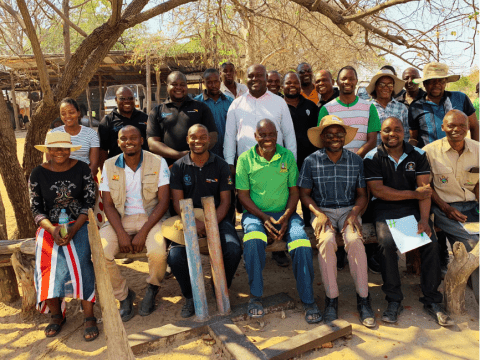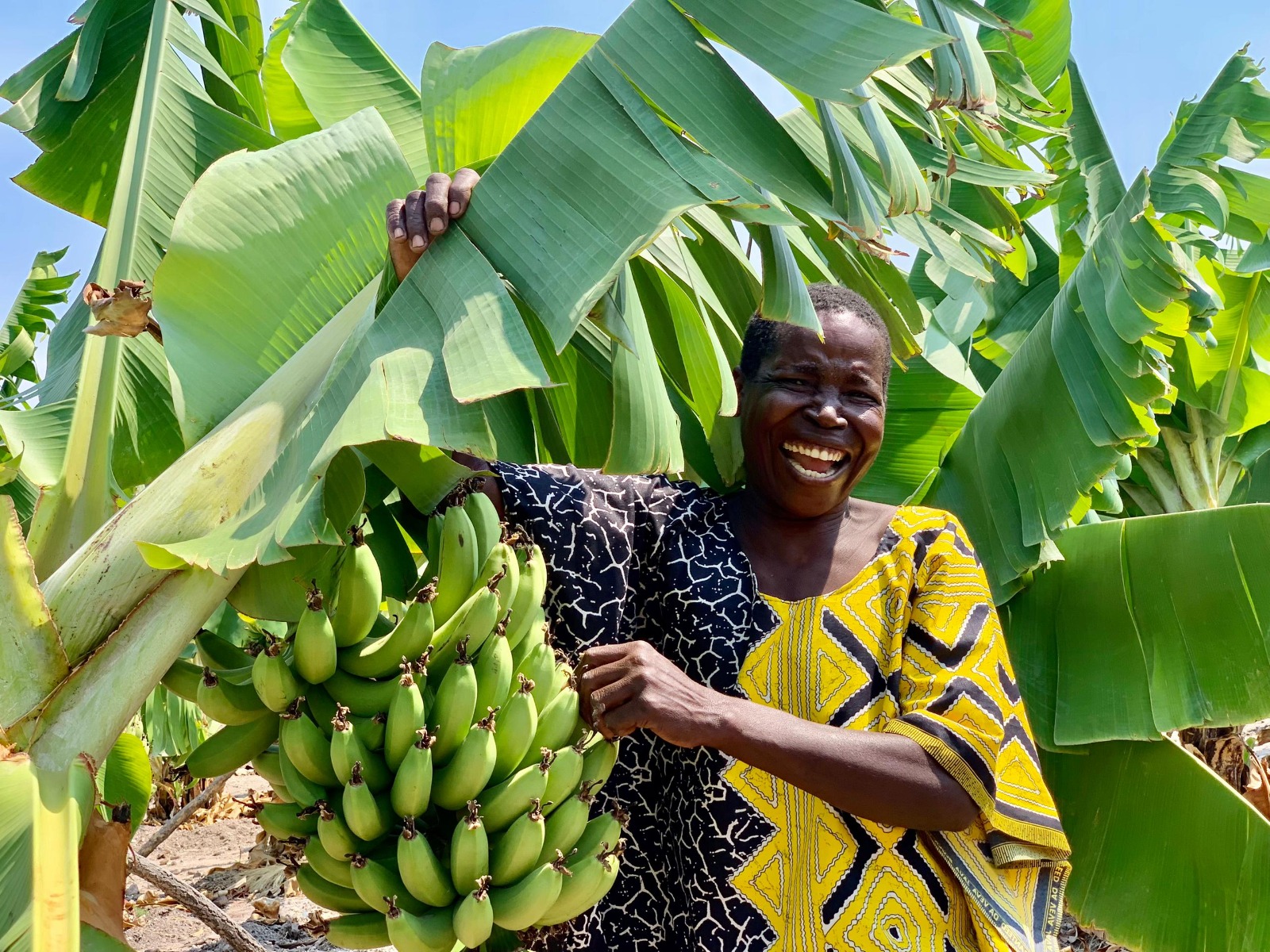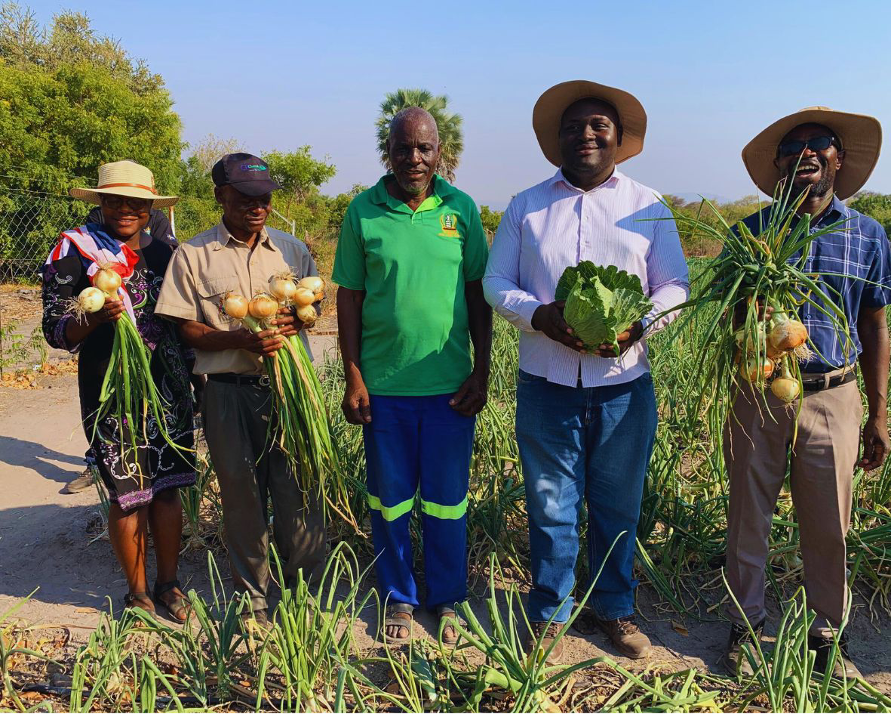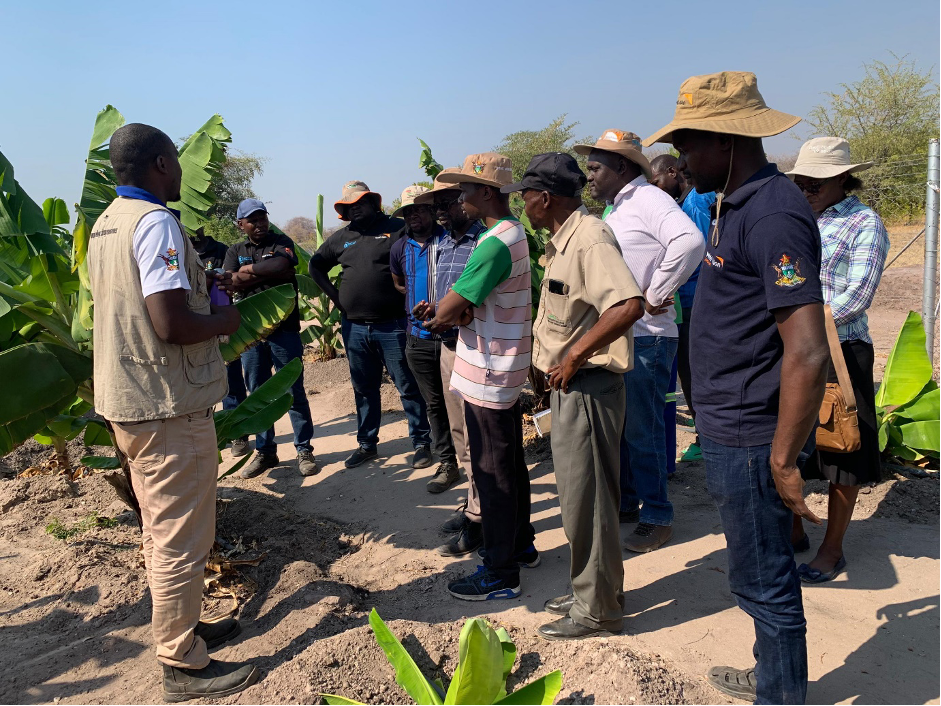Building Resilience to El Niño: Sustainable Nutrition Gardens in Kariba District

By Leana Padera (Communications Intern)
As Zimbabwe grapples with the devastating impacts of the El Niño-induced drought, vulnerable rural communities are turning to innovative solutions to mitigate food insecurity. In Kariba District, World Vision Zimbabwe, in collaboration with the Government of Zimbabwe, the World Food Programme (WFP), and United States Agency for International Development (USAID), is providing a lifeline through the Food Assistance for Assets (FFA) Program. This initiative has transformed lives by establishing nutrition gardens that not only address immediate food needs but also foster long-term resilience and sustainable development.
Two exemplary gardens—Majazo Nutrition Garden and Nabbole Nutrition Garden—stand as beacons of hope. Recently, government stakeholders visited these gardens to witness the transformative work and assess the tangible benefits they are bringing to the community. The visit highlighted how these gardens have become critical assets in building food security in the face of climate challenges.

The nutrition gardens are thriving hubs of diverse agricultural activity. They feature an assortment of vegetables and fruit trees, including citrus and banana varieties, ensuring year-round produce for the community. Notable infrastructure such as piped water systems, greenhouses, composting areas, and eco-friendly innovations like charcoal cooling rooms showcase how sustainable farming practices can thrive in arid conditions. Advanced irrigation systems, including water-efficient drip irrigation, conserve precious resources while promoting healthy plant growth.
Community participation lies at the heart of this initiative. Members actively engage in planting, harvesting, and maintaining the gardens, creating a strong sense of ownership and unity. With 60% of participants being women, the gardens also serve as platforms for women’s empowerment, providing vital skills, leadership roles, and opportunities to generate income.

“The gardens have been life-changing,” said Mr. Musemwa, Director of the Provincial Coordination Office of the Minister of State for Provincial Affairs and Devolution. “We are pleased to see how the community has been empowered, gaining skills and income-generating opportunities.”
Trust Nyanzara, World Vision Zimbabwe’s Regional Activity Coordinator, expressed deep appreciation for the government’s role in ensuring the program’s success.
“We have received tremendous support from the Government since the program’s inception. Through the Agritex Office and Women’s Affairs, they have helped equip and guide our garden members, significantly contributing to this initiative’s success.”
In the face of the ongoing drought, the gardens have become lifelines, offering reliable sources of nutritious food. By promoting climate-resilient agricultural practices, the program empowers communities to withstand the harsh effects of El Niño. As families face dwindling water supplies and reduced crop yields due to prolonged dry spells, the nutrition gardens help alleviate hunger, reducing child malnutrition and ensuring access to vital nutrition.

Chief Mola, whose village benefits from Nabbole Garden, shared his gratitude for the program. “I am happy that my people are benefiting from this initiative. Cases of child hunger and malnutrition in my village have significantly decreased, and this garden is now a vital source of nutrition.”
The District Development Coordinator for Kariba District, Desmond Gumbochuma, echoed this sentiment, noting the potential for further growth.
“The work being done here is truly impressive. If we can allocate more land to the gardens, there is immense potential for them to expand into viable businesses.”
The visit by government officials provided encouraging insights and reaffirmed the vital role of nutrition gardens in addressing food insecurity during this challenging time. The Food Assistance for Assets Program has not only empowered communities but also created a sustainable model for building resilience in the face of climate change. Stakeholders expressed their commitment to supporting the expansion of these gardens, recognizing their potential to transform local livelihoods and ensure long-term food security in drought-prone regions of Zimbabwe.
As Zimbabwe and the broader Southern Africa region continue to feel the effects of El Niño, initiatives like these nutrition gardens offer a blueprint for how communities can not only survive but thrive through sustainable, climate-smart agriculture.